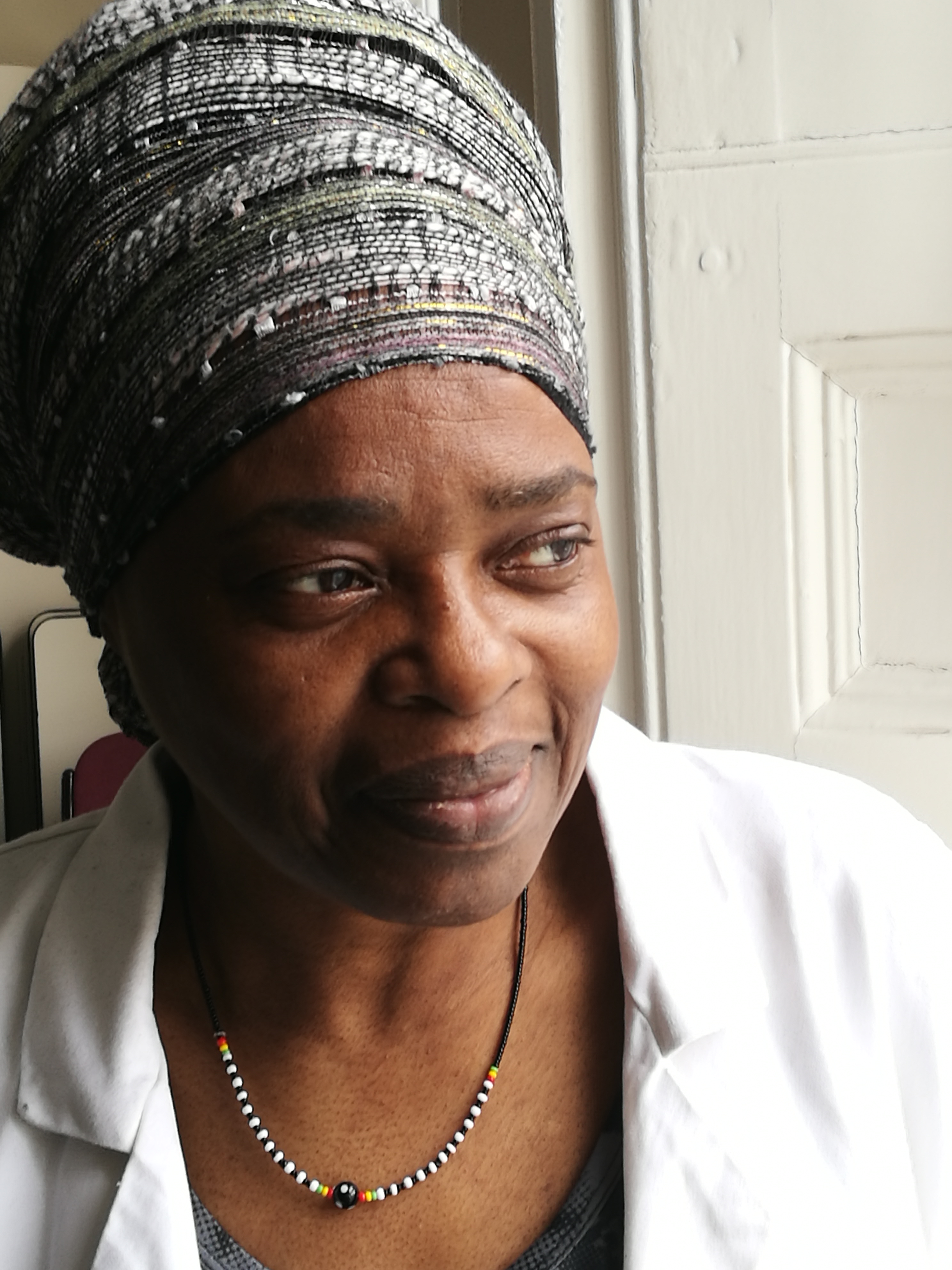Student Disciplinary Procedure
1.0 Introduction
Purpose and Scope
1.1 The purpose of the Student Disciplinary Procedure is to outline the process for dealing with allegations of inappropriate student behaviour. Students are expected to behave considerately at all times as a member of the College and local community and to respect the rights of other students, staff and members of the general public both on and off campus. Guidance for Staff on addressing inappropriate student behaviour and guidance for students subject to allegations of inappropriate behaviour can be found in the appendices of this procedure.
1.2 CICM is committed to the fair and equal treatment of all individuals regardless of race, sex, disability, age, socio-economic category, sexual orientation, religion or belief. We wish to create a positive, inclusive and diverse working, learning and social environment, free from unfair discrimination, prejudice, intimidation and all forms of harassment. (Single Equality Scheme August 2010).
1.3 The Student Disciplinary Procedure shall apply to any CICM student enrolled on a programme of study and studying at the College.
1.4 This Procedure will normally be applied in respect of alleged inappropriate student behaviour occurring in, or in the vicinity of, premises owned or leased by the College. However, the College also reserves the right to take disciplinary action against a student in respect of behaviour considered inappropriate wherever it may have taken place when the behaviour (a) jeopardises or damages the good name or reputation of the College or (b) raises questions about whether the student concerned should remain a student of the College because (s)he poses a danger to other students, the Staff, or to the good order of the College community as a whole.
1.5 The overall responsibility for the maintenance of student discipline lies with the Dean
Categories of Misconduct
1.6 Misconduct is divided into three categories to reflect the different levels of student misbehaviour:
- Minor Misconduct (see section 2);
- Major Misconduct (see section 3);
- Gross Misconduct (see section 4).
Guiding Principles
1.7 In order to ensure that students are treated fairly, those Staff responsible for
interview/committee arrangements should ensure that students are:
- Informed of any allegations
- Given adequate notice of interview/committee arrangements
- Advised that they are entitled to be accompanied by a CICM student Support/Advice staff or a Friend/Family Member as indicated in the Glossary
- Permitted the opportunity to respond to any allegations and provide additional evidence/witness statements
- Informed of their right to appeal
1.8 In determining any penalties under this Procedure, the interview panel/committee members should
decide whether on the balance of probabilities, misconduct has occurred. Staff determining penalties or
considering appeals should also give consideration to proportionality.
1.9 Staff making the decisions in disciplinary matters are expected to be independent and impartial.
1.10 Staff should give consideration to the fact that behaviour which may be considered inappropriate
may be the result of a disability or mental health difficulties, e.g. Attention Deficit Hyperactivity
Disorder (ADHD). See section 6 for further information.
Accompaniment
1.11 A student may be accompanied by a Friend, Family Member, a CICM student or a member of
KUSU Students’ Union Support and Advice staff to disciplinary interviews and disciplinary
committees. Students and Staff attending disciplinary committees may also be accompanied by a Trade
Union or professional association as applicable.
Representation
1.12 As the Student Disciplinary Procedure is an internal process for investigating allegations of
inappropriate student behaviour, representation by a third party is not considered appropriate.
Representation by a Friend or Family Member will only be permitted where there is a valid reason (e.g.
ill-health and disability). In such circumstances where representation has been requested and agreed by
the Dean the student must provide his/her signed written consent to this effect. Legal representation
or accompaniment will not be permitted under any circumstances.
Mediation
1.13 Students and staff should be encouraged to mediate any minor occurrences.
Student Absence
1.14 Students are required to engage with the disciplinary process and attend disciplinary
interviews/committees when requested to do so. Should a student not be able to attend an
interview/committee at the specified date and time, (s)he is required to contact the member of Staff
responsible for organising the interview/committee as soon as possible to provide a valid reason for
his/her inability to attend. A valid reason would be the attendance at a class or examination, prior
personal commitments, particularly for those with caring responsibilities, or non-attendance due to
illness with the student required to provide supporting evidence (e.g. timetable, medical certificate.) If a
valid reason is provided, an interview/committee will normally be rescheduled.
1.15 In the event that a student does not attend an interview/committee, the panel should review the
information to satisfy themselves that the student has been sent the appropriate notification. If a panel
decides that the student has been duly notified and determines that they have sufficient evidence to
enable them to make a decision, the matter will be considered in the student’s absence. If the panel
determine that it is not possible to make a decision without hearing the student’s
account, the following action can be taken:
- Minor Misconduct – reschedule interview. If the student does not attend a second interview,
the original issue and the non-attendance should be referred to the Dean for consideration as
major misconduct;
- Major Misconduct – reschedule interview. If the student does not attend a second interview, the
student may be suspended pending attendance at a rescheduled interview;
- Gross Misconduct - reschedule committee and suspend student pending attendance at a
rescheduled committee.
The decision of the panel members on whether to adjourn or proceed in the student’s absence is final.
2.0 Minor Misconduct
Definition
2.1 Minor misconduct includes persistent disruptive behaviour, behaviour which causes a disturbance
or nuisance to others or behaviour which may impact on health and safety at a lower level. The
following are examples of minor misconduct. Please note: this list is illustrative only and not designed
to be prescriptive
- Repeated use of mobile phones in classes and/or the library.
- Refusal to comply with minor College procedures and regulations (e.g. eating and drinking in unauthorised areas)
- Addressing Staff or fellow students in an impolite, inappropriate or offensive manner (e.g. using
inappropriate language) - Misuse or unauthorised use of College facilities or property (Depending on the offence, such
misconduct may be categorised as major misconduct – see section 3) - Bringing the College into disrepute (e.g. through noise and/or anti-social behaviour in the local
community) - Obstruction or disruption of College processes and procedures or roles, responsibilities and
activities of members of the College community (Depending on the offence, such misconduct
may also be investigated as major misconduct- see section 3) - Failure to evacuate following a fire alarm activation
- Persistent late arrival for appointments and classes
- Petty theft
- Non-compliance with ground rules for acceptable behaviour outlined by academic Staff in
lectures, seminars etc
Please see section 6 regarding behaviour which may be the result of a disability.
Process
Reporting of Allegations
2.2 Any members of Staff and students are entitled to report any allegations of minor misconduct to
the Dean.
Conduct of Investigation
2.3 The Dean will collate evidence from Staff and students involved (e.g. witness statements, incident
reports, copies of correspondence) and determine the level of misconduct. If allegations are confirmed
as minor misconduct, the student will be requested in writing to attend a meeting with the Dean,
normally within 7days of receipt of the allegations. Appendix C provides guidance for Staff conducting
disciplinary interviews. Appendix D provides guidance for students subject to allegations of
misconduct. The student is entitled to bring a Friend/Family Member or a member of KUSU
Support/Advice staff to the interview for support. Please see 1.14/1.15 regarding student absence.
2.4 Staff and Students who have reported incidents of misconduct or who have been subject to
misconduct will not be required or permitted to attend the disciplinary interview. Any written or verbal
account of the allegations or incident will be collected from these parties prior to the Interview.
Penalties and Outcome
2.5 Based on the evidence, the Dean shall determine on the balance of probabilities whether minor
misconduct has occurred. In determining an appropriate penalty, previous instances of minor
misconduct by the student in his/her faculty or another department may be taken into consideration.
One or more of the following penalties may be applied for instances of minor misconduct:
- Formal written warning;
- Suspension from classes and/or use of facilities for up to a maximum of five days. Suspension
should only be used as a penalty where a student’s presence in an area has caused a major
disruption; - Suspended Fine up to £200 as a good behaviour bond. A good behaviour bond should be issued
as a penalty to discourage future misconduct by a student. The good behaviour bond will
normally be payable should the student exhibit similar behaviour in the future. - Payment of replacement costs up to £250 for loss/damage to College and/or student property
(damage of values greater than £250 should be considered as major misconduct); - A reflective written piece of work from 500 up to 2000 words on the student’s behaviour
- A written apology to the aggrieved party.
This list is not exhaustive
2.6 The student will normally be notified of the outcome in writing within 5 days of the interview.
Penalties involving a suspension of the use of facilities will normally be applied 5 days after the student
has been advised of the outcome.
2.7 The aggrieved party or parties will be notified by the Dean that the investigation has been
concluded. Please note the outcome of the disciplinary process will not be disclosed.
2.8 On completion of a disciplinary investigation, the Dean may determine that the alleged misconduct
is more serious than initially considered.
Appeal
Grounds for appeal
2.9 The student has the right to appeal to the Dean against a penalty issued for minor misconduct on
one or more of the following grounds:
- The penalty issued was disproportionate given the evidence available
- The procedure was not followed correctly which would have made a material difference to the outcome
- New evidence has come to light that could not have been known at the time of the interview and may have an impact on the decision
2.10 The student must submit an appeal in addition to any supporting documentation to the Dean (see
Appendix F for details) within 7 days of the date of the letter advising him/her of the penalty for minor misconduct. Appeals which do not relate to the above grounds or which are submitted outside
the 5 day period will not be considered and the student will be notified accordingly. This decision is
considered final.
Process
2.11 The appeal and supporting documentation shall be considered by a senior member of the teaching
staff with no prior involvement in the case. The quorum of the appeal panel is two members. The
appeal panel will be convened as soon as practically possible and normally within10 days of receipt of
the student’s appeal. The appeal documentation will comprise: the student’s appeal and supporting
documentation and a written response to the appeal from the Chair of the Disciplinary Committee who
issued the penalty.
2.12 The student is not required to attend in person following the submission of their appeal
documentation unless they wish to do so and should indicate a desire to attend on submission of the
appeal. Any disciplinary penalty issued against the student will be suspended pending the outcome of
the appeal. On the basis of the evidence submitted, the panel shall determine whether the appeal
should be upheld or dismissed. Should the appeal be dismissed then the penalty imposed by the
faculty/department shall be immediately applied. If the appeal is upheld, the panel must determine
whether to:
a) dismiss the disciplinary case against the student
b) request that the Disciplinary Committee reconsider the case
c) impose a lesser penalty
The outcome will be communicated in writing to the student within 7 days of the
appeal being considered. This decision is considered final.
3.0 Major Misconduct
Definition
3.1 Major misconduct includes threatening behaviour and bullying or harassment of Staff or students.
The following are examples of major misconduct. Please note: this list is illustrative only and not
designed to be prescriptive.
- Abusive/threatening behaviour towards Staff and students
- Bullying or harassment of a student or member of Staff via any means including phone, text, e-mails or on internet forums, blogs, Facebook and Twitter. This includes the publishing of offensive material about an individual. Please see Appendix F for sources of support/guidance if you are the victim of harassment/bullying)
- Damage to or defacement of College property or the property of other members of the College
community caused intentionally or recklessly - Theft of College property (Depending on the offence, such misconduct may be categorised as
minor misconduct (petty theft) or gross misconduct) - Fraud, deceit or dishonesty in relation to the College or its Staff or in relation to being a student
at the College - Tampering with fire equipment (Depending on the offence, such misconduct may be categorised
as gross misconduct- section 4) - False or malicious allegations against College Staff – e.g. fabricated complaints/accusations of
Staff performance and/or conduct that may have been raised initially as part of the Student
Complaints Procedure - Bringing the College into disrepute (e.g. damaging the good name or reputation of the College)
- Non-compliance with penalties imposed for minor misconduct
- Obstruction or disruption of College processes and procedures or roles, responsibilities and
activities of members of the College community - Conduct which constitutes a criminal offence (see section 7) where that conduct took place a) on
College premises b) affected other members of the College community or c) damages the good
name of the College.
Process
Reporting of Allegations
3.2 Any allegations of major misconduct should be referred to the Dean together with any
documentary evidence. Students reporting incidents of misconduct will be expected to provide a
written statement together with any supporting evidence. Based on the information received, the Dean
shall determine the level of misconduct.
Conduct of Investigation – Disciplinary Interview
3.3 Student(s) will normally be requested to attend a Disciplinary Interview within 7 days of receipt of
the allegations. The interview will form part of the Dean’s investigation and also provides an
opportunity for the student to present his/her account of the incident(s). Please see 1.14/1.15
regarding student absence.
3.4 The student is entitled to be accompanied by a member of KUSU
Support/Advice staff or a Friend or Family Member to the Disciplinary Interview, to call any witnesses
and submit relevant evidence in support of his/her case. Appendix D provides guidance for students
who are required to attend a disciplinary interview.
3.5 The Disciplinary Interview shall be conducted by the Dean with a member of Staff also present to
make a record of the discussions. A representative from the affected programme may also form
part of the Disciplinary Interview panel. However, the representative shall not be the directly aggrieved
party and will normally be a Programme leader. Appendix C provides guidance for staff conducting the
interview.
3.6 Staff and Students who have reported incidents of misconduct or who have been subject to
misconduct will not be required or permitted to attend the Disciplinary Interview. Any written or
verbal account of the allegations or incident will be collected from these parties prior to the Interview.
Penalties and Outcome
3.7 At the conclusion of the Disciplinary Interview, the Dean/members of the panel will withdraw to
consider whether major misconduct has occurred. The panel may seek to verify information provided
by either party prior to arriving at a decision.
3.8 Based on the evidence submitted, the Dean/members of the panel will determine on the balance of
probabilities whether major misconduct has occurred. If it is determined that it has, the student will be
issued with one or more of the following penalties:
- Formal written warning
- Suspension from the College or use of facilities or classes for up to 30 days
- Suspended Fine up to £1000 as a good behaviour bond. This amount will normally be payable
should the student not comply with any disciplinary penalties or any future misconduct be related
and credited to the Learning Resources funds. Should there be a repetition of similar misconduct,
students may be referred directly to a Student Disciplinary Committee and/or be required to pay
the good behaviour bond - Payment of replacement/compensation costs for loss/damage to College
- and/or student property
- Compensation for wasting Staff time as a direct result of student’s misconduct on the basis of £25 per hour up to a maximum of 5 hours
A reflective written piece of work up to 2500 words on the student’s behavior. This list is not
exhaustive.
3.9 The student will normally be notified of the outcome in writing within 7 days of the Disciplinary
Interview.
3.10 If major misconduct has occurred, a copy of the letter notifying the student of the outcome will be
sent to the Academic Director. The letter should be marked as confidential and placed on the student’s
file.
Referral to the Student Disciplinary Committee
3.11 Staff or students who have been subject to major misconduct will be notified by the Dean that the
investigation has been concluded. Please note the outcome of the disciplinary process will not be
disclosed.
3.12 On completion of a disciplinary investigation, the Dean may determine that the alleged behaviour
is gross misconduct. In these instances, the Dean will request that a Student Disciplinary Committee is
convened as outlined in section 4.
Appeal
Grounds for appeal
3.13 The student has the right to appeal against a penalty issued by the Dean/panel within 7 days of the
date of the letter advising him/her of the penalty. The appeal must be based on one or more of the
following grounds:
- The penalty issued was disproportionate given the evidence available
- The procedure was not followed correctly which would have made a material difference to the outcome
- New evidence has come to light that could not have been known at the time of the Disciplinary Interview and may have an impact on the decision
3.14 An appeal should be submitted in addition to any supporting documentation to the Academic
Director within the specified timeframe. Appeals which do not relate to the above grounds or which
are submitted outside of the 7 day period will not be considered and the student will be notified
accordingly. This decision is considered final and as such the student will be provided with information
about the Office of the Independent Adjudicator (see section 8).
Process
3.15 Should an appeal fall within one or more of the grounds for appeal, the Academic Director will
convene an Appeal Panel to consider the appeal documentation. The Panel will be convened as soon as
practically possible and normally within 25 days. Any disciplinary penalty issued against the student will
be suspended pending the outcome of the Appeal Panel. The Appeal Panel shall comprise the
following members who will not have had any prior involvement or knowledge of the case:
- One of the Joint-Principals as Chair
- A member of academic Staff of senior grade or a manager of professional grade
- A Representative of KUSU
The quorum of the Appeal Panel is two members to include the Chair
3.16 The student is not required to attend in person following the submission of their appeal
documentation unless they wish to do so. The student must confirm whether they wish to be in
attendance on submission of the appeal.
3.17 The appeal documentation will comprise the student’s appeal and supporting documentation in
addition to a written response from the Dean to the student’s appeal.
Outcome of the Appeal
3.18 On the basis of the evidence submitted, the panel shall determine whether the appeal should be
upheld or dismissed. Should the appeal be dismissed then the penalty imposed by the Dean shall be
immediately applied. If the appeal is upheld, the panel must determine whether to:
a) dismiss the disciplinary case against the student
b) request that the Dean reconsider the case
c) impose a lesser penalty
3.19 The student will be notified of the decision of the Appeal Panel in writing by one of the Joint
Principals within 7 days of the Appeal. This decision is considered final and as such the student will be
provided with information about the Office of the Independent Adjudicator (see section 8).
4.0 Gross Misconduct
Definition
4.1 Gross misconduct is behaviour which calls into question a student’s registration at the College. The
following are examples of the type of behaviour categorised as gross misconduct although this list is
illustrative and is not designed to be prescriptive:
- Dealing in illegal substances
- Physical assault on a member of Staff and/or student
- Use or threat to use a weapon
- Criminal conviction for any of the above and for offences against the person of a violent or sexual nature
- Theft of College property
- Non-compliance with a disciplinary penalty issued by the Dean
- Non-co-operation with a disciplinary investigation conducted by the Dean (e.g. non-attendance without valid reason at a disciplinary interview)
- Fraud, deceit or dishonesty in relation to the College or its Staff or in relation to being a student
at the College (e.g. claiming home fees status as an overseas student, funding applications,
identity fraud) - Malicious activation of fire alarms (e.g. activation of a fire alarm during examinations)
Process
Reporting of Allegations
4.2 Any allegations that are categorised as gross misconduct will be immediately forwarded to the Dean,
including any evidence (e.g. witness statements, incident reports, copies of e-mails, notes of meetings,
transcripts of conversations/text messages etc). The Staff Member shall be responsible for referring
gross misconduct cases together with documentary evidence to the Dean. The Dean will determine,
based on the definitions/examples above, whether the allegations fall within the gross
misconduct category. Should the Dean consider the allegations to constitute major or minor
misconduct then the affected student shall be advised accordingly and the matter dealt with at the
appropriate level.
4.3 Should the Dean decide that the allegations constitute gross misconduct then s/he will collate the
relevant documentation together with supporting evidence which the student/faculty/department will
be asked to provide. If it is considered that the student poses a health and safety risk to other members
of the College community. Given the nature of the allegations, it may be recommended to the Joint
Principal that the student is suspended from the College or excluded from specified
premises/campuses of the College pending the completion of disciplinary procedures (see section 5).
Arrangements for the Student Disciplinary Committee
4.4 The Dean will forward the documentation together with an overview of the case to one of the Joint
Principals and request that a Student Disciplinary Committee be convened to hear the allegations. The
documentation and overview from the Dean will form the basis of the paperwork to be considered by
the Student Disciplinary Committee. The Student Disciplinary Committee will be held as soon as
practically possible and normally within 25 days of receipt of the allegation of gross misconduct sent by
the Dean. The Joint Principal will be responsible for the administrative arrangements for the Student
Disciplinary Committee.
4.5 The student will be invited by the Joint Principal to provide a written response to the allegations.
Any statement from the student should be submitted to the Joint Principal no later than 5 days before
the date of the Student Disciplinary Committee. The statement should include any relevant witness
statements.
4.6 The composition of the Student Disciplinary Committee is as follows and no member of the
Committee shall have had prior involvement or knowledge of the case:
- Programme leader as Chair
- Two members of academic Staff of senior grade or two managers of professional grade
- A Representative of the Students’ Union or any member of the student body.
The quorum of the Committee is three members to include the Chair
4.7 The student, members of the Student Disciplinary Committee and the Dean shall be sent the
relevant paperwork no later than 5 days before the date of the Committee together with a copy of this
Procedure. The student is entitled to be accompanied to the Committee by a member of KUSU
Support/Advice staff or a Friend or Family Member as indicated in the Glossary.
4.8 The student and the Dean have the right to call witnesses to support their respective cases. The
student and the Dean have responsibility for calling their witnesses to the Student Disciplinary
Committee in terms of attendance. The names of any witnesses are to be provided to the College
Secretary no later than 5 days before the date of the Committee in order that this information can be
provided in the paperwork for consideration at the Committee. Should a student or Dean wish for any
witnesses’ details to be withheld (e.g. cases of harassment) then any such requests should be made to
the Joint Principal in advance of the Student Disciplinary Committee.
4.9 Students and Staff who have been subject to alleged gross misconduct may choose to attend the
Student Disciplinary Committee to present their account of the incident(s). Should they not wish to
attend, written accounts will be considered. The Dean will contact students and Staff to confirm their
attendance.
4.10 Both witnesses and students or Staff subject to alleged gross misconduct will attend the
Committee to present their account and may also be asked to respond to any points of clarification
from the panel. Following this, witnesses, Staff/students attending in this capacity will be asked to leave
by the Chair in order that disciplinary proceedings can be concluded.
Please see 1.14/1.15 regarding details of student absence.
Conduct of Student Disciplinary Committee
4.11 The proceedings for the Student Disciplinary Committee shall be as follows:
- The Chair shall open proceedings by outlining the process
- The Chair will summarise the allegations made against the student and ask the Dean to confirm
that the allegations as defined are accurate - The Chair will then invite the Dean to call on any witnesses in support of the allegations
- The members of the Committee and the student will have the opportunity to ask questions of the
Dean and its witnesses - The student will then be asked to respond to the allegations and to call any witnesses in support
of his/her case. - The members of the Committee and the Dean will be able to ask any questions of the student
and his/her witnesses - At the end of the respective submissions, the Chair will ask the student and Dean whether they
wish to make any concluding statements prior to the Committee withdrawing to consider its
decision in private
Penalties and Outcome
4.12 Based on the evidence submitted, the Committee will determine on the balance of probabilities
whether gross misconduct has occurred. Should the Committee determine that gross misconduct has
occurred, it can recommend the following range of penalties to the Joint Principal:
- The expulsion of the student from the College with immediate effect
- A suspended expulsion for the remainder of the current academic year or duration of a student’s
studies. Any further evidence of misconduct and/or failure to comply with penalties agreed by
one of the Joint Principals will normally result in the student being expelled with immediate
effect from the College without referral to a Student Disciplinary Committee - A fine or financial penalty. In cases where it has been proven that a student has submitted
fraudulent documentation to gain a financial advantage (e.g. claiming home fee status as an overseas student or submitting a fraudulent application for College funding), (s)he shall be
required to pay back any difference in amounts; - Suspension from the College for a period up to a year;
- A final written warning and/or a good behaviour bond ranging between £1000 to £2000. If a
good behaviour bond is issued and further incidents of misconduct occur, it may result in
payment of the good behaviour bond and/or any of the penalties listed here
This list is not exhaustive.
Approval of the Join Principal
4.13 The Student Disciplinary Committee, will inform the previously appointed Joint Principal of the
Committee’s recommendations and will provide a report summarising the case and the reasons for the
Committee’s conclusions. The Joint Principal can either approve the Committee’s recommendations or
may decide to impose a lesser penalty. The Joint Principal shall normally give written notice within 5
days of receipt of the Committee’s recommendations, to the student, Chair of the Committee and the
Dean of the decision and of the penalty/penalties to be imposed.
4.14 A student has the right to appeal against the decision of the Joint Principal within 5 days of the
date of the letter from the Joint Principal notifying the student of the decision. The appeal process and
the grounds for appeal are outlined in the section below. Should the student not submit an appeal
within the specified time frame, then (s)he shall be deemed to have accepted the decision of the Joint
Principal and will be required to comply with any disciplinary penalties. Should a student not comply
with any disciplinary penalties then the Dean shall refer the matter back to the Student Disciplinary
Committee. If the Student Disciplinary Committee determines that the student has not complied with
the penalty issued then the student shall be expelled with immediate effect from the College.
Appeal
Grounds for Appeal
4.15 A student has the right to appeal against the decision of the Joint Principal within 5 days of the
date of the Joint Principal’s letter informing the student of his/her decision. The appeal must be based
on one or more of the following grounds and must be supported by appropriate evidence:
- The penalty issued was disproportionate given the evidence available
- The procedure was not followed correctly which would have made a material difference to the outcome
- New evidence has come to light that could not have been known at the time of the Student Disciplinary Committee and may have an impact on the decision
4.16 The student must appeal to the Dean in writing within the specified timescale. Appeals submitted
outside of the time period will not be considered unless the student can demonstrate a valid reason (e.g.
medical grounds) with evidence to explain why (s)he has been unable to make the deadline. On receipt
of an appeal, the Dean will determine whether the appeal falls within one or more of the grounds.
Should an appeal not fall within one or more of the grounds for appeal or not be submitted within the
specified timescale, it will be rejected by the Dean and the student informed that the penalty
determined by the Joint Principal shall stand. This decision is considered final and as such the student
will be provided with information about the Office of the Independent Adjudicator (see section 8).
Administrative Arrangements for the Governors’ Appeal Committee
4.17 Should an appeal fall within one or more of the grounds for appeal, the Dean will convene a
Governors’ Appeal Committee. Any disciplinary penalty issued against the student (not including suspensions on grounds of health and safety- section 5) will be suspended pending the outcome of the
Governors’ Appeal Committee. The Appeal Committee shall comprise the following neutral
parties who will have had no prior involvement or knowledge of the case:
- One member of the Board of Governors – who shall act as Chair
- One other Governor
- Representative of the Students’ Union
The quorum of the Committee is two members which shall include the Chair.
4.18 The Dean shall be responsible for the administrative arrangements in convening a Governors’
Appeal Panel. A College Representative, normally the Chair of the Student Disciplinary Committee,
will be asked to attend by the Dean. The Committee shall be held as soon as practically
possible and normally within 25days of receipt of the appeal. The following arrangements shall apply in
respect of the Governors’ Appeal Committee:
- The student’s submission to the Appeal Committee will normally comprise his/her grounds for appeal and supporting evidence to substantiate those grounds.
- The College Representative will also be asked to provide a written response to the student’s
appeal on behalf of the Disciplinary Committee panel no later than 5 days before the date of the Appeal. - The Governors’ Appeal panel paperwork will comprise the student’s submission, the College Representative’s response and the Joint Principal’s letter advising the student of the disciplinary outcome.
- The student and the College Representative will be asked to attend the Appeal Committee by the
Dean with no less than 5 days notice of the date of the Appeal Committee. - Copies of the documentation will be circulated to the members of the Committee, the student
and the College Representative no less than 5 days before the date of the Appeal. - The student is entitled to be accompanied to the Appeal Committee by a member of KUSU
- Support/Advice staff or a Friend/Family Member or a Representative of a Trade Union and Professional Association (see Glossary)
- The student and the College Representative are both entitled to call witnesses to the Appeal and
must provide names of any witnesses that they wish to call to the College Secretary no later than
5 days before the date of the Appeal. The student and the College Representative have
responsibility for calling their witnesses to the Appeal Hearing in terms of attendance.
Proceedings of the Governors’ Appeal Committee
4.19 The Governors’ Appeal Committee will focus solely on the student’s grounds for appeal and will
not constitute a rehearing of the previous disciplinary level. Please see 1.14/1.15 regarding student
absence. The Governors’ Appeal Committee shall be conducted as follows:
- At the beginning of the Appeal, the Chair will outline the process and indicate the grounds for
appeal. - The Chair shall invite the student to provide his/her appeal which can be made by either oral or
written submission and to call any witnesses, as appropriate. - Members of the Appeal Panel will be able to ask questions of the student and his/her witnesses.
- When the student has concluded his/her appeal, the Chair will then invite the College
Representative to provide his/her response and to call any witnesses, as appropriate. - Members of the Appeal Committee and the student will have the opportunity to address any
questions to the College Representative and any witnesses that (s)he calls. - At the conclusion of the College Representative’s response, the Chair will ask if the student or
College Representative wish to make any final statements to the Appeal Committee in support of
their respective cases. - The Appeal Committee will then withdraw to consider in private whether the appeal should be
upheld or not.
Outcome of the Appeal Committee
4.20 If the Appeal Committee dismisses the appeal, it will confirm the decision of the Joint Principal.
4. 21 Should the Appeal Committee uphold the appeal, it may:
a) dismiss the disciplinary case against the student
b) refer the matter back to a Student Disciplinary Committee
c) impose a lesser penalty
4.22 The decision of the Appeal Committee will be confirmed in writing to the student by the Dean as
soon as practically possible and normally within 10 days of the Appeal. This decision is considered final
and as such the student will be provided with information about the Office of the Independent
Adjudicator (see section 8).
5.0 Suspension
5.1 A student who is the subject of an allegation of misconduct under this procedure, or against whom
a criminal charge or appeal is pending or who is the subject of a police investigation may be suspended
from the College by one of the Joint Principals pending the completion of these respective processes.
5.2 Suspension involves a total or partial prohibition of attendance at or access to College premises and
on any participation in College activities. It may be subject to qualification, such as permission to attend
for the purpose of an examination or a requirement that the student should have no contact of any
kind with a named person or persons. The suspension is not a penalty but a measure taken on health
and safety grounds where there is a potential risk to members of the College community and/or its
premises.
5.3 The Dean will recommend the suspension of a student from the College to the Joint Principal
where there is a health and safety risk posed by the student’s presence on campus or where necessary in
exercising a duty of care towards other Staff and students. The Dean will normally make the request for
a student suspension to the Joint Principal. If the Joint Principal approves the recommendation to
suspend, the student will be notified of the decision in writing by the Joint Principal with the
suspension becoming immediately applicable. The letter shall advise the student that (s)he has the right
to make representations to the Joint Principal within 5 days of notification of the suspension.
5.4 Should a student wish to make representations, (s)he should contact the Joint Principal to make an
appointment. The student will normally have the opportunity to make a representation in person unless
health and safety considerations make a written representation more appropriate. Following a student’s
representation and any advice received from the Dean as appropriate, the Joint Principal may decide
that the suspension is continued or that the suspension be commuted to an exclusion from specified
areas of the College campus and/or from having contact with named individuals. Alternatively, the Joint Principal may determine that in light of developments (e.g. Police investigation), the suspension is
no longer required. The student shall be informed in writing of the Joint Principals’ decision within 5
days of the meeting.
5.5 A suspension will be reviewed thereafter every three weeks by the on the advice of the Dean. The
student will be responsible for informing the Joint Principal of any developments which may have
implications for the terms of the suspension.
5.6 A suspension may remain in force pending the outcome of a Police investigation or court case.
6.0 Students with disabilities /Mental Health difficulties
6.1 The Mental Health Protocol sets out the procedure for Staff to follow in cases where a student’s
behaviour may be attributable to a mental health difficulty. If it appears to those considering an
allegation of misconduct that the student in question may have a disability/mental health difficulty then
the advice of a Mental Health or Disability Advisor in Student Services will be sought. Where
appropriate, any disciplinary action may be adjourned for the preparation of a medical report. If there is
medical evidence that a student has a disability/mental health difficulty which may have contributed to
the behaviour against which disciplinary action is sought, the disciplinary process may be suspended or
terminated by the Dean as appropriate.
6.2 It may be made a condition of suspension or termination of the proceedings that the student seeks
medical treatment. If the student does not co-operate with the College in relation to investigation of
health matters (for example, by refusing to obtain medical reports as requested or by refusing to seek
treatment from the relevant specialist, e.g. psychiatrist) then the matter may be referred for
consideration under the Student Disciplinary Procedure. Such a decision shall be made following
consultation with the appropriate Mental Health/Student Wellbeing liaison.
7.0 Misconduct which is also a criminal offence
7.1 A student is obliged to inform Deans if (s)he is subject to a Police investigation, charge or Unspent
(as defined under the Rehabilitation of Offenders Act 1974) Conviction (to include cautions,
admonitions, reprimands, final warnings, bind over orders or similar) relating to offences against the
person, whether of a violent or sexual nature, or pertaining to unlawfully supplying illegal substances,
offences involving firearms, offences involving arson and offences under the Terrorism Act 2006. Any
member of Staff in receipt of such information should also immediately notify the Dean. If the nature
of the allegations poses a potential health and safety risk for Staff and students, then the College may
consider the suspension of the student pending the completion of the Police investigation and/or court
case (see section 5). Students failing to disclose criminal convictions and/or submitting fraudulent
documentation (e.g. passport, birth certificate etc) as part of their application/enrolment to the College
will be dealt with in accordance with the procedure outlined in the Fraudulent Applications Policy.
7.2 For more serious allegations of misconduct where the Police are involved, any disciplinary action on
the part of the College will normally be deferred pending the outcome of any Police investigation or
court case, as appropriate. However, the College reserves the right to continue disciplinary action for
those cases where it is considered appropriate to do so in view of the length of time it can take for
Police investigations/court action to be concluded. For cases where disciplinary action is
deferred, the College may consider the suspension of the student or his/her exclusion from specified
sites and/or named individuals pending the outcome of Police investigations/court case if there are
health and safety implications relating to the allegations (see section 5).
7.3 The Dean will advise the student of the deferral of any disciplinary action by the College. The
student will be responsible for informing the Dean of any developments/updates concerning
Police/court action. The Police may also share relevant information with Deans to inform any
disciplinary action, if applicable, under this Procedure.
7.4 Where a student has been sentenced by a court, the Court’s penalty shall be taken into account in
determining any penalty issued under this Procedure. This can mean that an internal penalty is reduced
or that the external penalty indicated the seriousness of the offence. Students imprisoned for a period
of 21 days or greater will be deemed to have withdrawn from the College. The Joint Principal shall
decide whether a student be re-admitted to the College on the basis of advice and evidence collated by
Dean.
8.0 Office of the independent adjudicator (OIA)
8.1 The Office of the Independent Adjudicator for Higher Education (OIA)provides an independent
scheme for the review of student complaints which includes the right to appeal against a final decision
by a disciplinary or appeal body. Where a student has completed all the available processes under this
procedure, the College will issue the student with a ‘Completion of Procedures Letter’. A student will
need to submit his/her application to the OIA within three months of the date of the Completion of
Procedures letter. Further information about procedures for referring a matter to the OIA is available
from the College Secretary or Compliance Advisors or can be accessed via the OIA’s
websitewww.oiahe.org.uk.
Appendix A: Glossary of terms
For the purposes of the Student Disciplinary Procedure, the following terms are defined below:
| EXPRESSION | MEANING |
| Days | College Working days (Monday - Friday) excluding Bank and Public Holidays |
| Staff | Members of staff |
| Joint Principal | Joint Principal or such other person designated to act on his/her behalf by the Joint Principal |
| Dean | Deans or any member of Staff as may be designated by the Dean |
| Friend /Family Member | A person who accompanies a student to provide support. The person would not act as an advocate for the student and would not normally be expected to speak on behalf of the student. Legal representatives are not permitted to attend in any capacity including as a friend/family member |
| KUSU Support and Advice | Support is normally provided by a staff member of KUSU who can accompany a student at meetings |
| Representative of the Students' Union |
President of CICM Students’ Union (KUSU) or other Student Officer of KUSU as may be designated by the President of KUSU |
| Accompaniment | Students have the right to be accompanied by a Friend, Family Member or KUSU Support and Advice staff member as appropriate. The accompanying person can address the hearing, confer with the individual and ask but not answer questions on behalf of the individual unless agreed by the Chair |
| Representation | Someone formally nominated by the student to make their case on their behalf. Normally only agreed in exceptional circumstances when there is valid reason why the student cannot represent themselves. Legal representation is not permitted |
| College Representative | In respect of the Governors’ Appeal Committee, this is normally the Chair of the Student Disciplinary Committee. If the Chair of the Student Disciplinary Committee is unable to attend, s/he may delegate his/her responsibilities to another. This would normally be another member of the Student Disciplinary Committee. |
| Harassment | Unwanted conduct (intentional or unintentional) which has the effect of violating a person’s dignity. It may be related to age, sex, race, disability, religion, sexual orientation, nationality or any personal characteristic of the individual, and may be persistent or an isolated incident. The key is that the actions or comments are viewed as humiliating, degrading and unacceptable to the recipient and can create a hostile and intimidating environment |
| Bullying | Offensive, intimidating, malicious or insulting behaviour, an abuse or misuse of power through means intended to undermine, humiliate, denigrate or injure the recipient. It may happen in public or in private |
| Office of the Independent Adjudicator (OIA) |
The OIA is an independent body set up to review student complaints which is free to students |
| Completion of Procedures |
Completion of Procedures letter is issued when the relevant
|
Appendix B: Guidance for staff dealing with inappropriate behaviour
Introduction
All staff have a responsibility for addressing inappropriate student behaviour by ensuring that students
comply with rules and regulations within their areas of work and taking the appropriate action should
students fail to comply.
Proactive Strategies
- Make students aware of how they are expected to behave and wherever possible involve them in this process (e.g. devising ground rules in lectures)
- Stress the benefits of behaving appropriately and complying with rules/regulation (e.g. create a productive learning environment)
- Remind students periodically of rules and behavioural expectations (e.g. at the beginning of each
term)
When confronted with inappropriate behaviour:
- Remind the student(s) of the relevant regulations relating to behavioural expectations (e.g.
ground rules). Set the limits by defining permissible behaviour and consequences - Stay Calm – don’t be drawn into an argument
- Recognise when to draw a line – don’t take abuse.
- Be aware that the behaviour could be the result of a disability or mental health difficulty (see
guidance below) - Minimise the opportunity for other students to get involved – maintain eye contact with the
student involved and move the scene of conflict away from other students wherever possible. In
lectures/tutorials, try and see the student after classes. - If the student refuses to comply with a request to moderate his/her behaviour, seek the
assistance of a colleague or ask the student to leave - Call for assistance if a student refuses to leave and/or continues to exhibit inappropriate
behaviour despite warnings to desist from such conduct. Academic staff may consider
suspending lectures - If a student’s behaviour is perceived to pose a threat to the health and safety of staff, other
students in the vicinity or to him/herself then assistance should be called immediately. - Make a factual record of events and actions taken
- Seek advice
Mental Health/Disability and Student Behaviour
- If you are concerned about a student’s behaviour but it does not pose any immediate health and
safety concerns- contact the Dean for advice and guidance - Where a student’s behaviour poses a threat to the health and safety of others or him/herself ask
for assistance from whoever is appropriate. - Contact the Dean for advice/guidance regarding the Mental Health Protocol
Appendix C: Guidance for staff conducting disciplinary interviews
First Steps
Assess whether the incident should be addressed under the Disciplinary Procedure. If there is no
evidence of persistent misconduct or it does not fit within the categories or examples of misconduct in
this Procedure, the following approaches should be considered:
- Remind the student of the expected way of conducting him/herself in a particular setting or
generally as a student at the College. Ideally this should be addressed by the affected member of
staff directly with the student. Alternatively, a letter/email can be sent to the student reminding
him/her of the expected conduct. Reference can be made to this Procedure (as appropriate) if
the conduct persists.
Interview Arrangements
If it is clear that minor misconduct has occurred (see section 2 of the Procedure) the following steps
should be taken:
- Collate evidence relating the incident (e.g. emails/witness accounts)
- Invite the student to attend an interview in writing and include
-details of the allegations
-reference to the available support (KUSU Support and Advice)
-date/time/venue and details of who will be present
-a request for the student(s) to make the organiser aware of any reasonable adjustments to be
made
-reference to the fact that a student’s attendance is required and that the matter may be
considered in his/her absence (consideration should be given to students with caring/other
responsibilities regarding their ability to attend)
-reference to the fact that a student can bring witnesses or witness statements in support of their
account - Interviews should normally take place within 7 days of receipt of the allegations
During the Interview
- Explain what will happen in terms of process
- Ensure a balanced account is acquired – afford the student an opportunity to give his/her
account - Keep a factual record of the interview. This should be confidential but may be placed on the
student’s file.
Decision and Outcome
- Determine on the balance of probabilities whether misconduct took place
- If a penalty is issued, decide on an appropriate and proportionate penalty to the offence
- Write to the student with the outcome within 7days of the interview
- Provide a reason for reaching the decision and make them aware of their right to appeal and
information about how to do this - Send a copy of the letter to the Dean for annual reporting purposes
- Aim for consistency in the treatment of the student compared with other similar circumstances
Appendix D: guidance for students attending disciplinary interviews
The Student Disciplinary Procedure is the formal mechanism under which allegations of inappropriate
student behaviour are investigated.
What will happen at a disciplinary interview?
- You will be sent written notification of the interview arrangements. The letter will outline the
allegations and inform you of the date, time, venue and who will be present. It will also advise
that you can bring someone with you to the interview for support (see Glossary for definitions of
Friend/Family Member and KUSU Support and Advice) - The interview is likely to last approximately 30 minutes, although it may last longer if the
allegations are complex or if there are discrepancies in the accounts provided - There will normally be one or two staff members present to conduct the interview. There will
also normally be a note taker. - Staff present at the interview will introduce themselves and summarise the allegations against
you. You will then be asked to explain what happened in your own words. - Staff will then ask questions to clarify what happened and ensure they fully understand.
- At the end of the interview, staff will consider all information in private in order to reach a
decision. - You will receive a letter confirming the outcome of the investigation and any penalties.
- The notes will be placed confidentially on your student file.
Frequently Asked Questions (FAQs)
Do I have to attend? Yes. You are required to attend a disciplinary interview or committee when
requested to do so. Even if you feel that you have not done anything wrong or there has been a
misunderstanding, it is important that you attend the interview so that your account of an incident can
be considered. If you do not attend, the matter may be considered in your absence.
What should I do if I can’t attend at the scheduled date/time? Contact the interview/committee
organiser as soon as possible and in advance of the scheduled date/time to inform them. You must
present a valid reason for not attending (e.g. illness/scheduled lesson/caring or other responsibilities)
with evidence to support this.
What is it that I am alleged to have done? The letter inviting you to attend the interview or committee
will highlight the allegations made against you. Please note, this does not mean that a judgement has
been made regarding your involvement in an incident. Remember, at this stage the College only has one
account of an incident.
What is minor, major or gross misconduct? These are the categories and levels of misconduct defined
under this Procedure. For more information about minor misconduct- see section 2, for major
misconduct- see section 3 and for gross misconduct, see section 4.
What should I do to prepare for an interview/committee? Familiarise yourself with the process and
collate any evidence (e.g. witness statements) in support of your account of an incident. Take time to
consider what you want to say.
Can I bring someone with me to the interview/committee? Yes. You can bring a Friend/Family
Member, member of staff from CICM Students’ Union Advice & Support (see Appendix A for
definitions). If you have any witnesses who can support your account of an incident, you can ask them
to attend with you or provide a statement and bring a copy with you to give to the panel to consider.
Who can I speak to about the process? If you are uncertain about the process and
would like to discuss it with someone, you can contact the Dean. You may also wish to speak to your
Personal Academic Tutor. Please see Appendix F: Sources of Support & Guidance for Staff & Students
for contact details.
Will I be issued with a penalty? If it is determined that misconduct has not occurred, you will not be
issued with a penalty. If it is determined that misconduct has occurred, you will be issued with a
penalty. Please see the Procedure for a list of possible penalties.
How is the decision made that misconduct has occurred? This is a decision made ‘on the balance of
probability’ taking into consideration the available information about the incident (e.g. accounts,
witness statements).
Can I appeal against a decision? Yes. You can appeal against any penalty which is issued under the
grounds for appeal and provide supporting evidence to support these grounds. Please see the
Procedure for further information.














